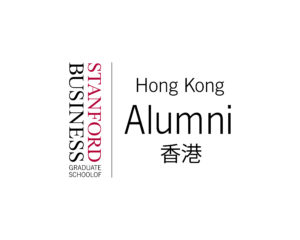Hacking, iPads & Beating Barbie At Her Own Game in Toyland
Speaker Series: Allan Wong,
Chairman, Group CEO & Co-Founder, VTech Holdings Limited
Breakfast, Friday, 17 March 2017, 08:00-10:00 am, China Club
How Hong Kong’s VTech Grew to be the World’s Largest Children’s Educational Learning Product Company, Survived a Nightmare Data Breach and Defied the Toy & Tech Industry Giants
Event Details:
The Stanford GSB Chapter of Hong Kong is pleased to invite you to breakfast and conversation with Allan Wong, Chairman, Group CEO & Co-Founder of VTech, the world’s largest manufacturer/ early pioneer of children’s electronic learning products (ELPs). Founded in 1976, VTech is also the world’s largest producer of cordless phones (bought the AT&T consumer business), starting first in video games and was one of the original Apple II approved clone manufacturers in the 1980s.
Like the Bumblebee’s short wing-span “preventing” flight, VTech has defied its oft-predicted demise in the global today industry, with “little toys” being a big business (globally, USD 90 billion in 2016, with American parents spending USD 500 per under 9 year-old child, annually).
Despite Hong Kong’s toy industry dramatically shrinking; despite child e-learning migrating to older-model iPads and smartphones that ever-younger toddlers inherit from mom/dad; despite Apps and video-games becoming increasingly cheap or free, and, despite the long-anticipated death of cordless phones, VTech continues to soar, with its recent acquisition of Michael Milken’s LeapFrog consolidating this lead. Products such as Go! Go! Smart Wheels Treasure Mountain Train Adventure and Go! Go! Smart Friends Enchanted Princess Palace are repeatedly on Walmart’s Top 25 Holiday, Toy Insider’s Hot 20, and TTPM “Most Wanted” Lists, regularly winning “Toy of the Year” and Nat’l Parenting Product Awards.
Critical to the “VTech Formula” has been to produce lower-cost toddler-friendly super-durable and age-appropriate tablet, tech gadgets and other electronically enabled educational products in a safer, parental monitored online/offline space, leveraging knowledge experts as MIT’s Eric Klopfer. i.e., trust, low-cost, and innovation.
Yet in Nov 2015, just before the Xmas season, a key leg of this formula, VTech’s online app store Learning Lodge, was hacked along with the personal data of 6.4 MM children and 4.6 MM parents (photos, parent/child conversations, addresses, birth dates, genders, etc), the worst known data-breach in Asia-Pacific of the year. At around the same time, Mattel’s Siri-emulating Hello Barbie was also identified as vulnerable to hacking and external spying. And, while VTech’s sales and share price have largely since recovered, other important medium-term business threats remain.
In 2011, its educational tablet InnoTab at USD 80 was 5x cheaper than a USD 400 iPad. Today, with smartphones and tablets under USD 100, is the VTech price advantage still important to parents? Will parents “pay more for less” via restricted/protected functionality if they fear all devices might be equally vulnerable to hackers or will they trust the big tech companies’ protection more? Will the natural aspirational nature of children to emulate their older peers and parents’ habits and devices push the average age of an EPL child consumer lower and lower? How low? If one moves a portion of the “walled garden” to Android/iTunes app stores (as has VTech’s LeapFrog), how does one “break through the noise” of being lost among hundreds of thousands of such offers? How does VTech see the China market (with a desired “95% to 5% learning to fun” ratio in ELPs vs 50/50 in the States) impacting its product line? And where do emerging Virtual/Augmented Reality (VR/AR) technologies fit into all this? Will kids still get excited about electronic storybooks once they’ve seen a different, immersive, virtual experience?
And, VTech’s competitors are changing. Once considered to be a niche industry, where the leaders were itself, LeapFrog and Fuhu (acquired by Mattel), VTech’s competitors, today, includes not only traditional toy giants such as Hasbro (Playskool) and Mattel (Fisher-Price), but also Amazon Fire Kids, MGA Entertainment, Disney, Samsung Galaxy Kids, and others.
The story of Hong Kong’s toy industry is also that of Hong Kong itself. Overtaking higher cost Japanese as OEMs for the USA players (Mattel, Hasbro, Kenner, Milton Bradley) and becoming the world’s largest toy exporter by 1972 before shifting much production to lower-cost China (VTech opened up its first PRC factory – in Dongguan – in 1988), with HK’s toy industry being the key early advocate with the US for China’s Most Favored Nation Status. At its 2007 peak, HK toy companies directly/indirectly employed 2.5 MM people across 8,500 factories. A mere 10 years later, only 3,000 factories remain and – with the exception of VTech – many of the great HK toy brands of yesteryear have disappeared. Globally, a once fragmented toy industry overall now has but 20% of its companies controlling 80% of its market.
The Stanford GSB Chapter of HK could not be more pleased to have Allan share his frank thoughts on these challenges that are as much of Hong Kong itself as of VTech. We hope you can join us.
Speaker’s Bio: Allan Wong
Allan Wong Chi-Yun, aged 66, co-founded VTech in 1976 and serves as Chairman and Group CEO of the Company, the world’s largest manufacturer of both children’s electronic learning products and of cordless phones.
Allan’s career is a testiment to the success of turning a personal passion about microchips into a multi-billion dollar company first founded a mere 2 years after finishing his graduate studies.
Separate from his role at VTech, Allan is also deputy chairman and independent non-executive director of Bank of East Asia, Limited and an independent non-executive director of China-Hongkong Photo Products Holdings Limited, Li & Fung Limited and of MTR Corporation Limited.
He holds a BS in Electrical Engineering from the University of Hong Kong,a Master of Science degree in Electrical and Computer Engineering form the University of Wisconsin (Madison) and an Honorary Doctorate of Technology from the Hong Kong Polytechnic University.

